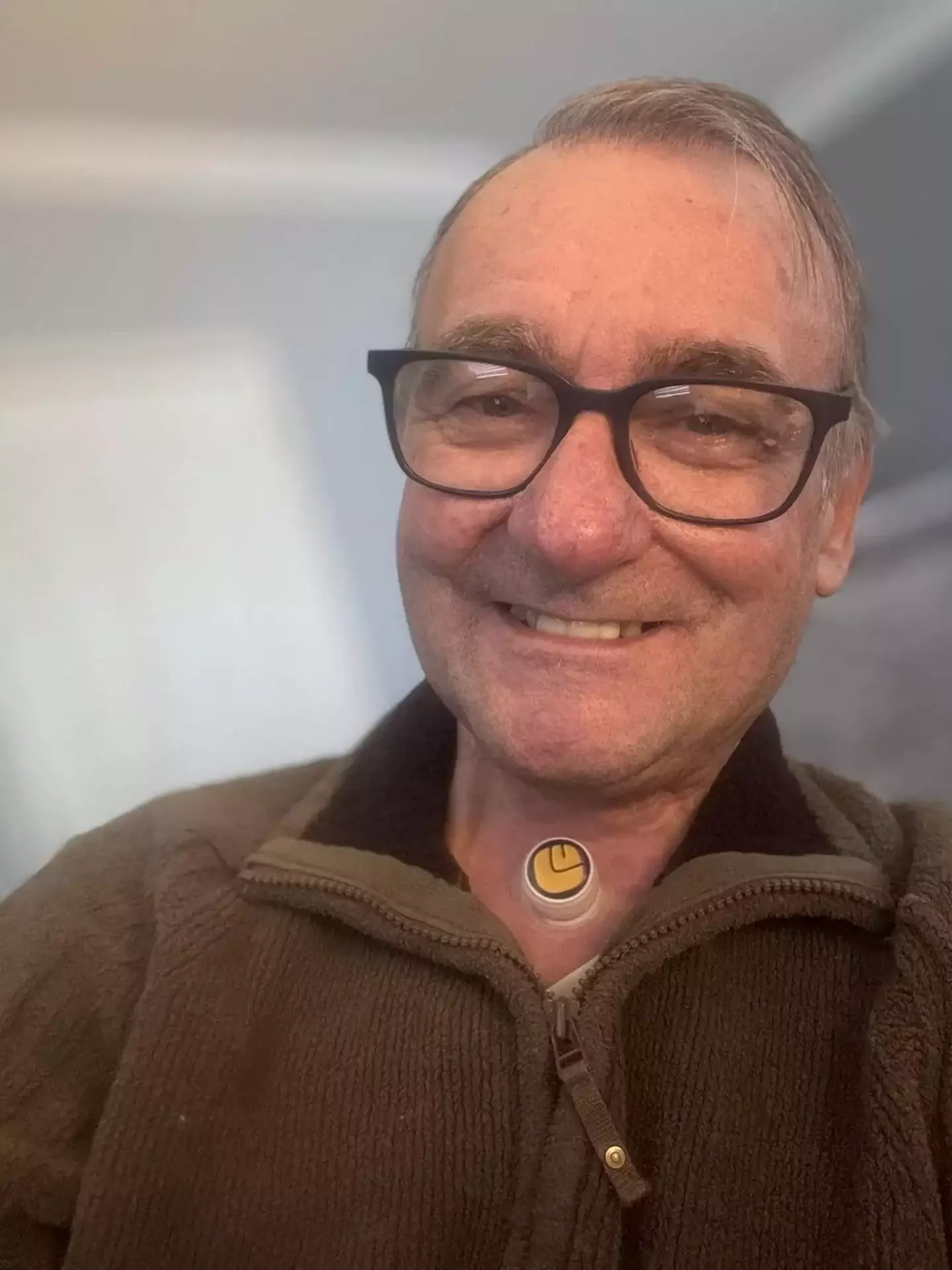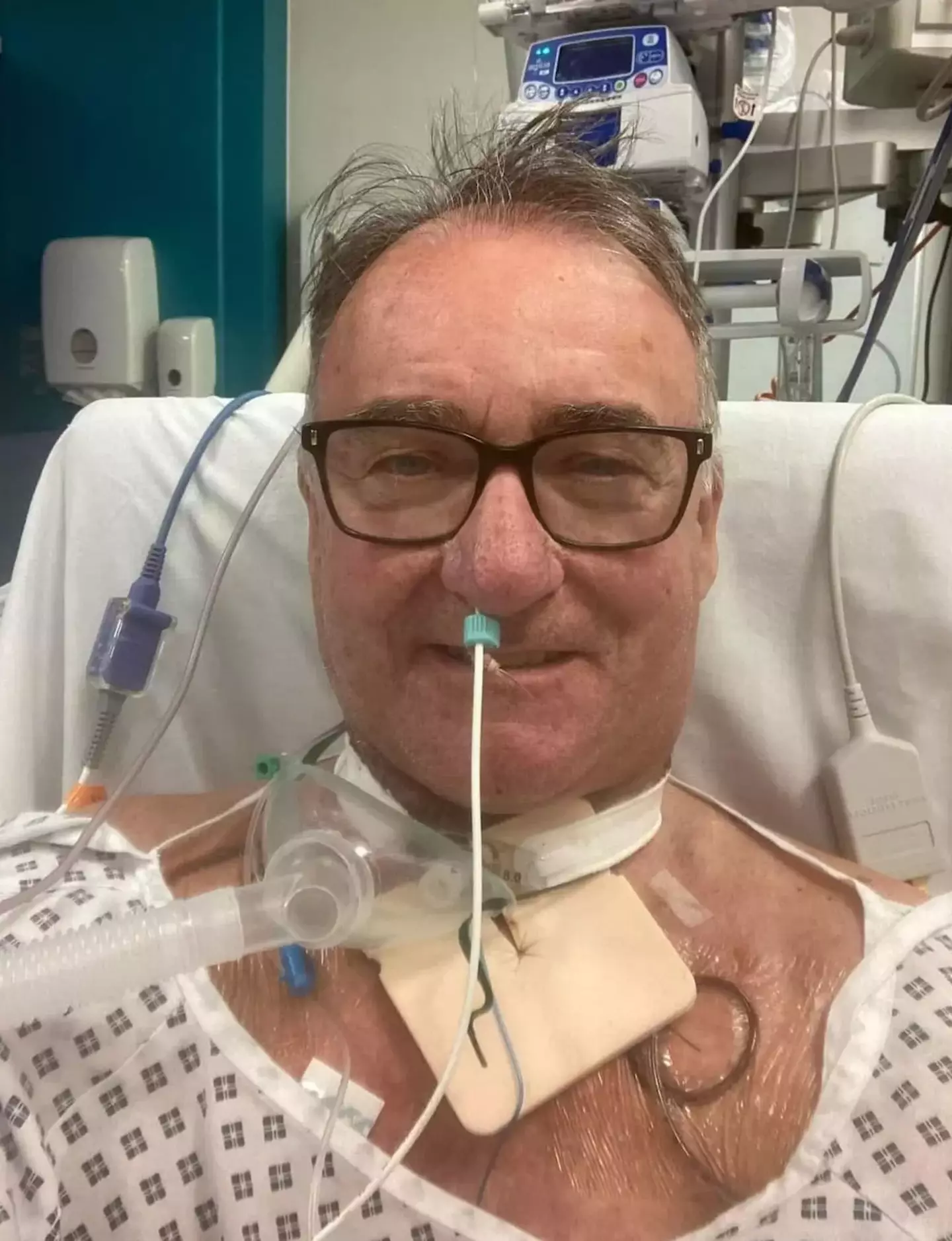Before this, the 67-year-old had been told by doctors that his symptoms were due to laryngitis, an inflammation of the voice box that can result in a range of symptoms, including throat pain and occasionally a fever.
Over several months, Warwick’s health deteriorated, and he feared it might be something severe.
Two years earlier, Warwick’s brother had passed away from throat cancer, raising concerns for the Littleborough, Greater Manchester resident that there might be a genetic component.

In an interview with the Manchester Evening News, Warwick shared: “I knew something was wrong, it wasn’t right, it wasn’t normal. The doctor said it sounds like laryngitis and not to worry about it. I said, ‘I’m feeling really worried, it’s been a few months and this can’t be right’.
“My brother died from throat cancer two years beforehand. I was worried at the back of my mind because of family history. They told me to wait and it got worse and worse.”
When his condition did not improve, Warwick finally managed to see a specialist after there was a last-minute cancellation.
Doctors conducted a variety of tests on Warwick, and in October 2022, he was diagnosed with stage 4 laryngeal cancer, a relatively rare form of throat cancer in the US.
Warwick told the MEN: “My feelings were anger more than anything. You just feel so, so angry. I asked what the outlook was. They said if you leave it, you have six months max or you can opt for a total laryngectomy. It will remove the lymph nodes, but you won’t be able to talk.”
Laryngectomy is a surgical procedure involving the removal of the voice box, and those who undergo it must speak using a throat stoma.

After spending 10 hours in surgery for a full neck dissection and total laryngectomy, a procedure providing a 50/50 chance of surviving for five years, Warwick’s life has been significantly altered.
He has had to learn to press the stoma hole on his neck to speak, which has been a challenging adjustment.
The grandfather had to retire, give up playing golf, and now gets up every four hours at night to clean out the TEP valve.
Reflecting on his new lifestyle, he said: “You just have to practice. I used to rabbit on a bit, so living in a world of silence is so frustrating.
“A lot of people think you’re deaf as well or just ignore you. You have to write things down. I used to type things out on my phone. You’re just so desperate to speak.”
Warwick is currently raising funds for The Oldham Quiet Ones, a laryngectomy support group in Greater Manchester where he serves as treasurer. If you wish to contribute, you can do so here.
If you are affected by this story and wish to talk to someone confidentially, you can reach the American Cancer Society at 1-800-227-2345 or through their live chat service, available 24/7 every day of the year.
